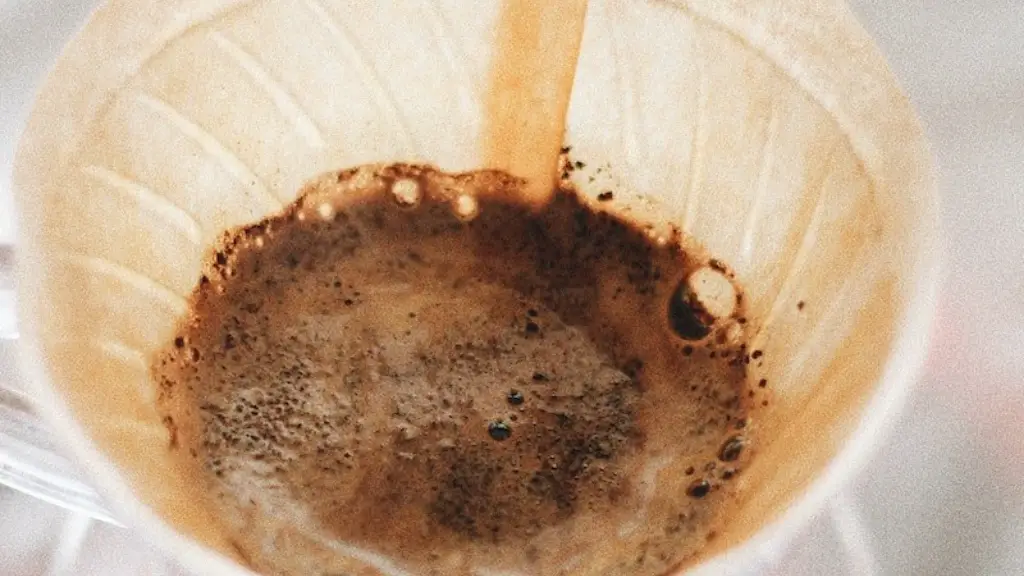The Impact of Consuming One Cup of Coffee a Day
The impact of coffee drinking is undeniable; it is one of the world’s most consumed beverages. Coffee has shaped the course of human history and continues to be a vital part of our daily lives. But is it bad to drink one cup of coffee everyday?
Many experts have studied the health effects of coffee, and, depending on the findings, their opinions differ. While some experts see coffee drinking as a source of enhanced alertness and improved concentration, others worry that the long-term effects of drinking one cup daily could cause adverse health effects.
However, recent studies conducted on the effects of coffee-intake suggest that moderate coffee-drinking is not linked to any long-term health risks. In fact, drinking one cup of coffee a day may actually be beneficial for a healthy lifestyle. Research suggests that the compounds found in coffee, namely the antioxidants and the caffeine, could lead to improved brain function and reduced inflammation. Studies also suggest that coffee can help protect against certain types of cancer,Type 2 Diabetes, and aid in weight management.
Although the potential benefits of drinking one cup of coffee everyday are promising, they should be weighed with the potential downsides of overdoing it. Too much caffeine can lead to insomnia, increased heart rate and anxiety. Individuals who have hypertension should be particularly conscious of their caffeine-intake and discuss it with their doctor. In addition, those who are at risk of bone fractures should limit their caffeine-consumption, as high caffeine-intake can contribute to calcium loss.
Overall, the evidence points to drinking one to two cups of coffee a day as beneficial to health. The key is to focus on drinking quality coffee. Organic, minimally processed and freshly-ground coffee will provide all the antioxidants and caffeine without any of the unwanted risks.
Nutritional Breakdown of Coffee
Coffee itself does not contain any calories. This means that, for many individuals, drinking one cup of coffee a day does not necessarily lead to any health risks associated with overconsuming calories. However, there can be unhealthy additions to coffee that can be higher in calories and sugar. If a person is adding things like cream, sugar, and syrups to their daily cup but is not mindful of their calorie intake, they might see an increase in their calorie consumption over time.
Although cream and sugar offer a delicious taste, they can detract from the health benefits of drinking one cup of coffee a day. Choosing to enjoy coffee without any additional sugars or flavorings will provide the most significant health benefits while reducing the risk of any long-term health risks.
Caffeine and Its Effects
Caffeine is a common ingredient in the world’s most popular beverages. Caffeine offers a number of significant health benefits such as improved focus, increased alertness and a more stable energy level.
In moderate doses, caffeine can also boost metabolism and thermogenesis, which can lead to improved weight management. While boosting metabolism, it is important to be aware of the potential risks associated with overdoing it. Too much caffeine can lead to increased heart rate, nausea, and headaches.
Because of the health risks associated with caffeine, it is important to be mindful of one’s caffeine-intake. Generally speaking, one 8-ounce cup of coffee contains about 95 mg of caffeine, which is considered a moderate amount. Most experts agree that 400mg is the point at which health risks are significant, so drinking one cup of coffee a day will not put one’s health in danger.
Stimulant versus Relaxant
Coffee can be both a stimulant and a relaxant. It can help individuals get through their day with improved focus and alertness, but too much can lead to anxiety and insomnia. Additionally, coffee has a psychoactive effect as it contributes to the release of dopamine in the brain. When consumed in moderation, it can have a positive effect on mood and overall energy levels.
Of course, the individual’s reaction to caffeine depends largely on their own body chemistry and lifestyle. For some people, one single cup can be too much, while for others, it may be just the right amount. It is important to pay attention to any changes in one’s energy levels, focus and mental clarity when deciding on an appropriate amount of coffee to be consumed.
Summary
Ultimately, drinking one cup of coffee per day may be beneficial to one’s health. Research suggests that moderate coffee-ingeast may be linked to improved brain function, reduced inflammation and protection against certain types of cancer and Type 2 Diabetes. It is important to be aware of the potential risks associated with excessive caffeine-consumption, but drinking one cup per day can be a safe and healthy habit.
Coffee Consumption Habits
The habit of drinking one cup of coffee a day is one that can become entrenched in one’s lifestyle, so it is important to pay attention to our own individual consumption habits when it comes to coffee. For those who rely on coffee as an energy source, planning out the day’s consumption pattern is a great way to ensure that one’s intake of caffeine is both regulated and beneficial. When combined with healthy eating and exercise habits, one cup of coffee per day can become a part of a healthy and balanced lifestyle.
Nutrition-Friendly Ways to Enjoy Coffee
People who choose to drink one cup of coffee a day can also find ways to enjoy their coffee without worrying about added sugars and calories. Simply adding a splash of milk or non-dairy milk to one’s daily cup will provide a creamy and delicious flavor without any added sugars or calories. In addition, adding cinnamon or a dash of cocoa powder are great ways to boost flavor without adding any extra calories.
Coffee Alternatives
While drinking one cup of coffee a day can be beneficial to health, there are other options that may provide a similar amount of energy and focus. Kombucha, for example, is a fermented beverage that contains trace amounts of caffeine. Green tea is another alternative that is rich in antioxidants and provides a modest amount of caffeine. For individuals who are sensitive to caffeine and still want an energy boost, consuming water or fruit-infused water can be a great and hydrating alternative.




